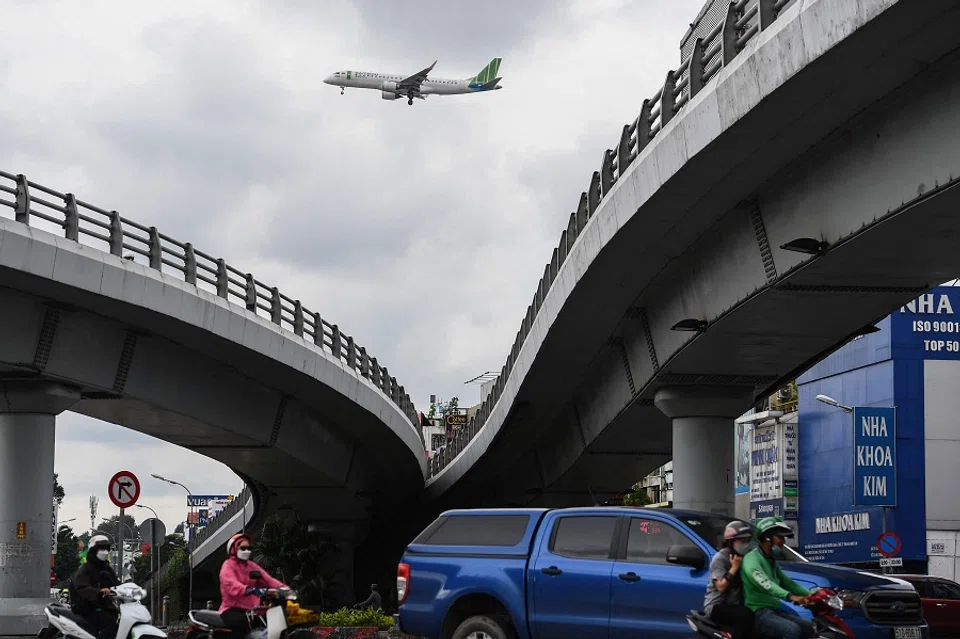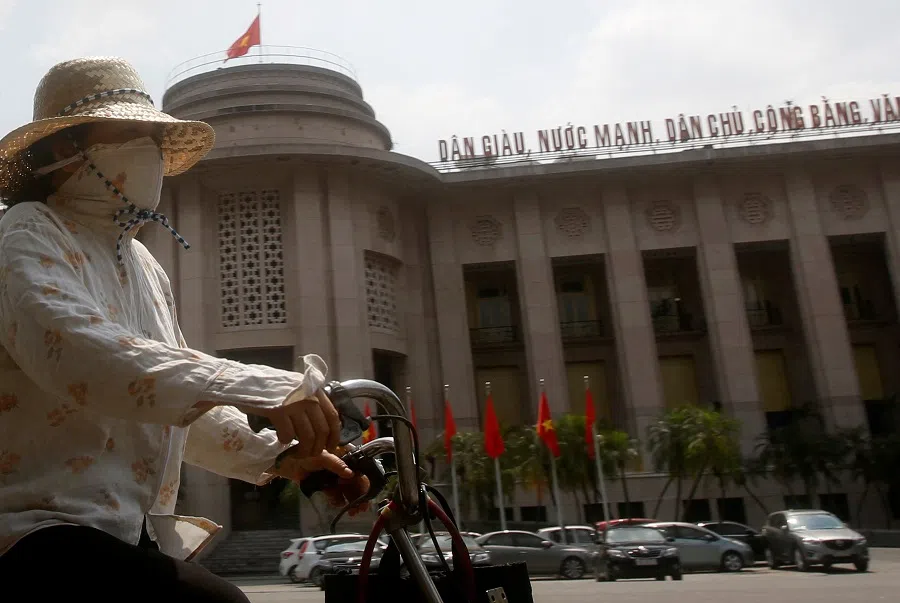Vietnam's vibrant crypto scene needs a regulatory framework
Vietnamese academic Huy Pham analyses Vietnam's growth as a crypto hub. While it is high on the rankings in terms of crypto adoption rate, much still needs to be done to create a stable regulatory framework if it is to take advantage of the vast potential it has in growing its cryptocurrency industry.

While attention has been paid to Singapore and Hong Kong vying for the crown as a leading crypto hub, other potential crypto capitals are also emerging in the region. One of them is Vietnam.
The Vietnamese government initiated a project to complete the legal framework for the management and handling of virtual assets, cryptocurrencies and virtual currencies in 2017, but five years have passed and it is still a work in progress. The crypto industry remains in the grey regulatory area which makes it relatively attractive compared to other regulated markets like Singapore or Hong Kong.
Lack of regulatory framework
While cryptocurrency exchange providers must go through a stringent selection process to obtain a licence in Singapore and soon-to-be in Hong Kong, exchanges like Binance or Remitano can freely operate in Vietnam without a financial service provider licence, and investors who make capital gains on crypto do not have to pay any taxes.
Many crypto projects, especially GameFi, Move to Earn, Metaverse and Web3, were launched in such an environment which, to some extent, helped boost national innovation and drive the digital economy.

Axie Infinity, developed by Vietnamese game maker Sky Mavis, is a good example. After Axie Infinity sparked the GameFi/Play to Earn (P2E) trend in Vietnam, there was an explosive wave of non-fungible token (NFT)-based games leading to an increasing demand for talents in this field. Although many projects did not survive and some were scams, it created a talent pool for many other blockchain-based projects.
... these issues may dampen market confidence and make Vietnam less attractive, especially when the hype is over.
However, the lack of a regulatory framework has also led to several issues: (i) the lack of investor protection if they get scammed; (ii) the difficulty of tracing crypto-related fraudulent and criminal activities such as money laundering; (iii) a volatile business environment" and (iv) the inability of the tax authority to collect taxes from crypto-related activities.
In the long run, these issues may dampen market confidence and make Vietnam less attractive, especially when the hype is over. Vietnam's deputy prime minister has instructed the Ministry of Finance to assume the prime responsibility of developing the regulatory framework. However, it is unclear when the framework will be released.
... Vietnam is one of the most active crypto trading hubs in the world (ranked number two in peer-to-peer (P2P) exchange trade volume according to Chainalysis's 2022 Global Crypto Adoption Index).
'Gambling' mindset of Vietnamese investors
Given the "get-rich-quick" and "gambling" mindset of most Vietnamese crypto investors coupled with the lack of a regulatory framework, it is not surprising that Vietnam is one of the most active crypto trading hubs in the world (ranked number two in peer-to-peer (P2P) exchange trade volume according to Chainalysis's 2022 Global Crypto Adoption Index).
P2P trading is often conducted via centralised exchanges such as Binance and Remitano, and the trading activity utilises the banking system whereby the buyer needs to transfer the payment to the seller's bank account, and once confirmed by the seller, Binance will release the cryptocurrency to the buyer's account.

Most traders are often young and tech-savvy but the whales are likely to be experienced traders/investors who have been trading and investing in other markets such as stocks, foreign exchange or real estate. Many of the traders are here to speculate with the hope that crypto will make them rich in a short period of time.
... the current mindset will not favour the investors, especially small retail investors, in the long term as they will be driven out by big players or whales given the manipulative nature of the crypto market.
The trend has been made worse by multiple Covid lockdown periods that led to many people losing their regular income and turning to alternative income sources from investments in stock or crypto.
During the bull market spanning from late March 2020 to mid-November 2021, crypto investors were led to believe that investing in crypto was an easy way to make a huge sum of money and sometimes at a tiny cost. Crypto projects mushroomed during this bull period and despite being scammed by several projects, the investors still somewhat believed in the ability to recover their losses by betting on other projects leading to further losses.

This behaviour can be attributed to the fact that investors often forget that crypto projects are just like any other startup that has a fail rate of over 90%. All in all, the current mindset will not favour the investors, especially small retail investors, in the long term as they will be driven out by big players or whales given the manipulative nature of the crypto market.
Being a young and technology-savvy population cohort, they are expected to drive crypto adoption further and in a more sustainable manner.
Vibrant scene and educated people
Despite the challenges, Vietnam remains unique as a nascent and growing crypto hub in various aspects.
First, Vietnam will still have a relatively large proportion (approx. 68-70% of the population) of working adults in the next ten to 15 years before the population starts to age. Vietnam is also expected to have around 50% of its population in the middle class by 2030, making it one of the top 20 economies with the largest middle-class population. Being a young and technology-savvy population cohort, they are expected to drive crypto adoption further and in a more sustainable manner.

In addition, education is key to maintaining Vietnam's position as a crypto hotspot. Vietnam is home to highly ranked universities in blockchain and crypto education such as RMIT University which ranked number two in blockchain globally (just behind the National University of Singapore and well-placed among other renowned universities like MIT or UC Berkeley).
Following RMIT University, many other universities have also started to provide crypto education for Vietnamese students. This educational trend will ensure that Vietnam has a sufficient and proficient labour force to meet the crypto industry demands for many years to come.
...it is very likely that a clearer regulatory framework or direction will materialise in the next year or so...
Although crypto regulation in Vietnam might remain unclear in the short term, the Vietnamese government is well aware that crypto assets may destabilise the financial system and the economy if left unregulated.
Therefore, although the government does not specify the exact date for introducing a framework, it is very likely that a clearer regulatory framework or direction will materialise in the next year or so, given the instruction from the deputy prime minister to the Ministry of Finance to complete the legal framework for virtual assets, cryptocurrencies and virtual currencies in April this year.

And last but not least, the fact that Vietnam has been ranked number one in Chainalysis' crypto adoption index for two years in a row shows that the Vietnamese are very willing to participate in the crypto space. However, given the previous scams and the current bear market, the crypto industry needs to enhance its credibility as well as clearly show its relevance to the economy in order to retain and attract more users.
Much work to be done
As Vietnam plans to establish a modern, sustainable and integrated national digital financial platform that will contribute to the growth of the economy, while ensuring macroeconomic stability and financial security by 2030, the country must take necessary actions to become a crypto hub that will have a favourable crypto regulatory framework and be home to world-leading crypto firms.
In addition, the public sector and the private sector must be willing to experiment with programmable money, and explore use cases for digital assets and asset tokenisation, to increase liquidity and efficiency, and possibly reduce financial risk under a solid and incentivised regulatory framework.
Until then, still a lot of work needs to be done and Vietnam might lose its "special and unique" opportunity to become a leader in this crypto race if it does not act fast.

![[Big read] Paying for pleasure: Chinese women indulge in handsome male hosts](https://cassette.sphdigital.com.sg/image/thinkchina/c2cf352c4d2ed7e9531e3525a2bd965a52dc4e85ccc026bc16515baab02389ab)


![[Big read] How UOB’s Wee Ee Cheong masters the long game](https://cassette.sphdigital.com.sg/image/thinkchina/1da0b19a41e4358790304b9f3e83f9596de84096a490ca05b36f58134ae9e8f1)
